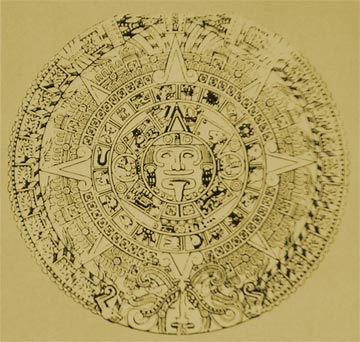-
Who discovered America? « Hindu focus
-
Who discovered America
Ricardo Palleres
- What if Europe was really in darkness in comparison to the Far East and India that Columbus set sail to find? What if the popular idea that the Tibetans and the American Indians have much in common in terms of their spiritual culture is largely a result of another historical scenario? What if Hindus and Hopis, Advaitins and Aztecs, Tibetan monks and Mayans were part of one world culture — a spiritual one?
-
Another historical scenario: The spiritually sophisticated Asians were the first to set foot on Western shores, and Asia, not Europe, was the seat of culture. The central focus of that culture was genuine spiritual development, not the mere shadow of the same in the form of the politically-motivated Pauline Christianity and later the Protestant ethic, which licensed humankind’s exploitation of nature.
This theory is found in the Vedic literature of India. The ancient Puranas (literally, histories) and the Mahabharata make mention of the Americas as lands rich with gold and silver. Argentina, which means ‘related to silver,’ is thought to have been named after Arjuna (of silver hue), one of the heroes of that great epic.
- Many historians have scrutinized historical evidence to find more insight into the marvelous cultures that populated the American continent before Christopher Columbus was born. Their thirst for research was based on the assumption that the great Mayan, Aztec, and Incan civilizations could not have appeared all of a sudden in the Western world. Rather, they must have received strong influence from ancient Eastern cultures, mainly from India.
- Alexander von Humbolt (1769-1859), an eminent European scholar and anthropologist, was one of the first to postulate the Asiatic origin of the Indian civilizations of the Americas.

- The Aztec Calendar is known as the Aztec Chakra to Hindu Astronomers. (National Museum of Anthropology, Mexico.)
-
!! समर्थ हिन्दु, समर्थ हिन्दुस्थान !!;........................!! समर्थ हिन्दुस्थान, समर्थ विश्व !!............................ All the posts on this blog are re-postings and post headings point towards the actual posts.
Monday, July 20, 2009
Who discovered America? « Hindu focus
Who discovered America? « Hindu focus
2009-07-20T19:51:00+05:30
Common Hindu